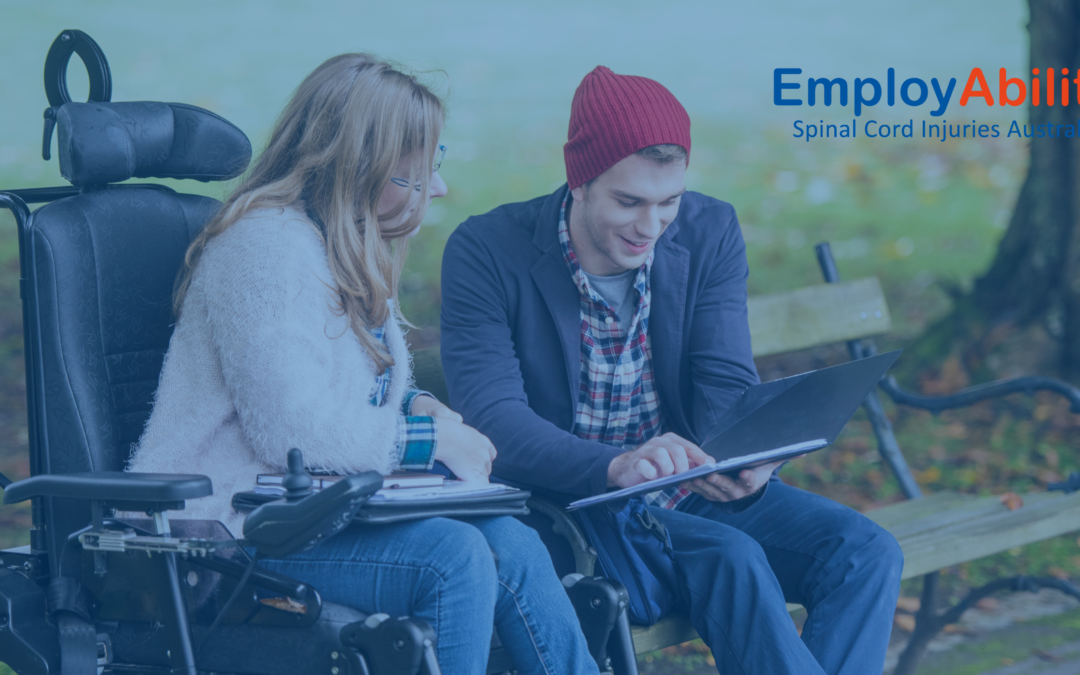Transferable skills are abilities and experiences that can be applied across different jobs and industries and are not limited to a specific job or sector. Simply put, they are a very mobile set of skills that move with you as you explore new jobs and careers.
Below are some tips for leveraging transferable skills when transitioning to a new career:
1. Identify your transferable skills and career opportunities.
Take some time to reflect on the skills you have developed throughout your previous career and personal life. These can include both hard skills (technical expertise) and soft skills (interpersonal, communication, problem-solving, leadership etc.). The EmployAbility Team can help you with a transferable skills checklist to fast track this process.
Ready to kickstart your job search? Here’s 6 questions to ask yourself before you start!
- Research your target industry.
Once you’ve identified your career path, learn about the skills and qualifications required in your new field. Look for commonalities between your transferrable skills and the skills sought by employers in the industry. This will help you tailor your applications and highlight the skills that are most valuable in your new career.
- Customise your resume and cover letter.
Tailor your resume and cover letter to showcase your transferrable skills that align with the job requirements. Provide concrete examples of how you have successfully applied those skills in your previous role or personal life. Emphasise your adaptability, problem-solving abilities, and determination in overcoming challenges. Remember, hiring managers and recruiters are savvy to generic, template-style applications, so it’s key to make sure it’s original and most importantly, relevant to the job you’re applying to.
- Network and seek advice.
Connect with professionals in your target industry who have experience with career transitions or disabilities. LinkedIn is a great place to start for industry specific expertise, however you can also attend industry events, join relevant online communities, and seek mentorship from individuals who can offer guidance and support. Their insights and advice can help you navigate the transition more effectively.
- Consider additional training or education.
Depending on the requirements of your new career, you may need to acquire additional skills or knowledge. Look for training programs, certifications, or online courses that can enhance your skill set and make you more competitive in the job market. This will demonstrate your commitment to learning and adapting to your new field and give your credentials a boost on your resume.
- Highlight your unique perspective.
Your disability and the experiences you’ve gained as a result can provide a unique perspective and set you apart from other candidates. Whilst living with a disability may be seen as a barrier to employment, your lived experience when applying for roles within the disability sector and community services sector, for example, can be a huge benefit. Highlight how your disability has shaped your approach to problem-solving, empathy, resilience, and creativity; and showcase how you can contribute to the diversity and inclusivity of the workplace.
- Practice interviewing and disclose disability when appropriate.
Prepare for job interviews by practicing common questions and formulating responses that emphasise your transferrable skills and how they can be valuable in the new role. If your disability is visible or may require accommodations, consider disclosing it during the interview process to ensure that the employer is aware and can make the necessary arrangements. Taking a STAR (Situation, Task, Action, Result) approach to interview preparation can make a big difference in helping you get over that line and get the all-important job offer.
- Leverage assistive technology and workplace modifications.
Explore assistive technologies, tools, and accommodations that can help you perform effectively in your new role. These can include adaptive devices, software, ergonomic equipment, or flexible work arrangements. It’s also worth considering getting an assessment by an occupational therapist to fully understand your workplace needs. Familiarize yourself with available resources and be proactive in requesting the accommodations you need to succeed.
Remember that transitioning to a new career takes time and perseverance. If you are unsure of what opportunities are out there, our EmployAbility program can help you to identify your transferable skills, overcome barriers to employment, and match you with disability friendly employers.
For more information, fill out our ‘Expression of Interest’ form via the link below and a member of our team will be in touch shortly.

